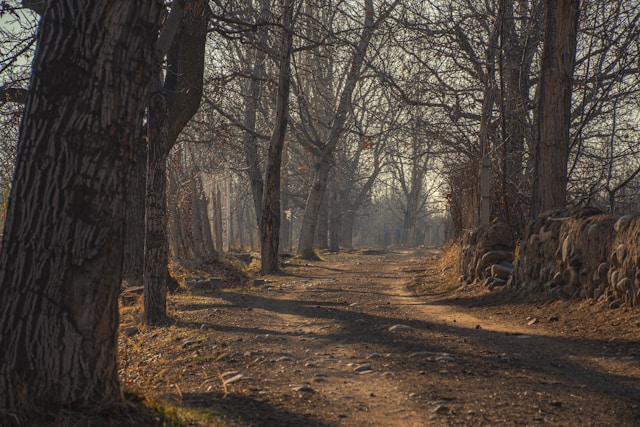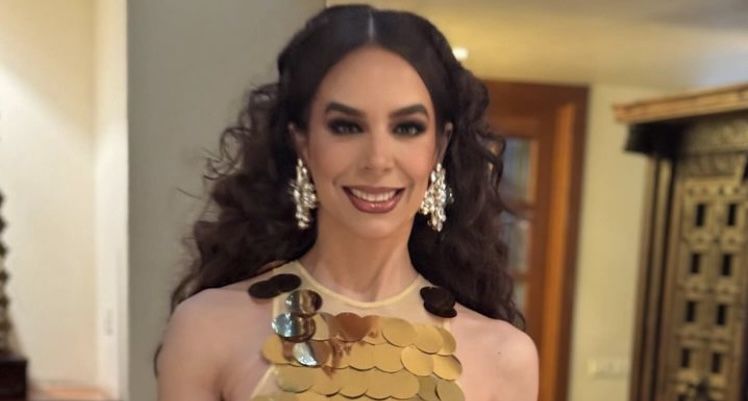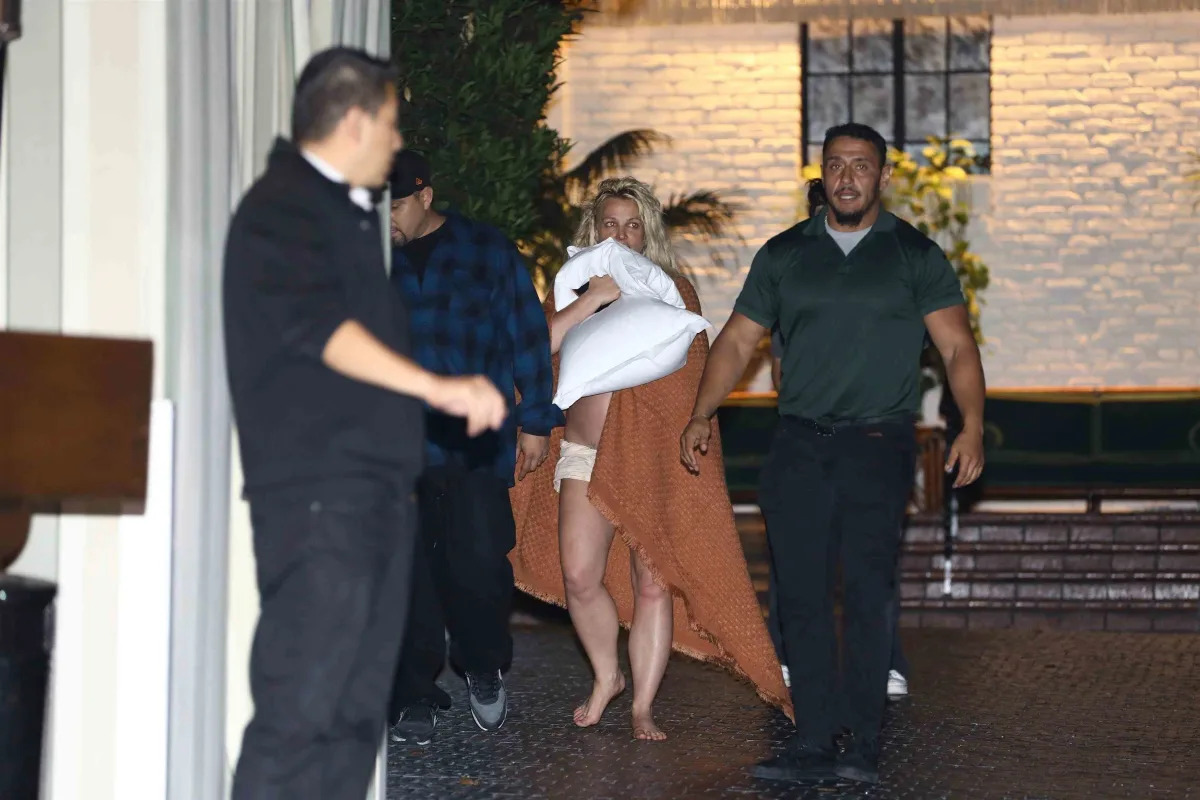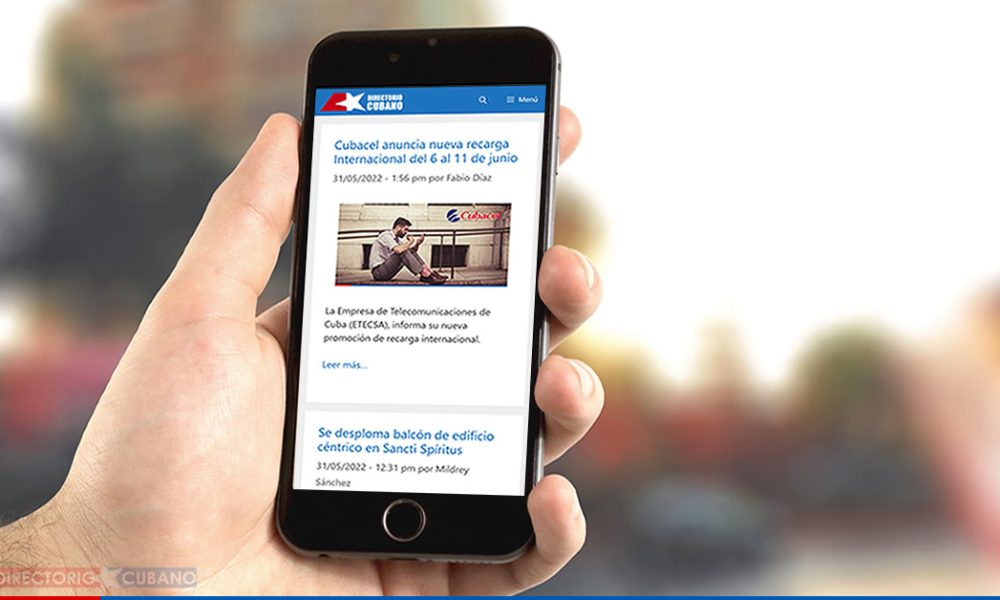It’s hard to write about your spiritual journey when you’re feeling a little bit lost. I don’t quite know where I am so how can I figure out how I got here? But here we are and I think I might just have been able to write myself into clarity.
It’s been a winding journey so far — I can only expect that the next phase of my life will take the same meandering course. Here are the simple facts:
I was raised in a small, Midwestern town and attended a conservative evangelical church and a Christian school throughout my childhood. It was the kind of place where people went to church twice on Sundays and once on Wednesdays. Christianity was a ubiquitous part of my upbringing; it was inescapable. And conservative religion and politics went hand-in-hand. Everyone I knew was a Christian and Republican; I figured that’s how my life would always be.
Thirty years later, I find myself in a wholly different place. I consider myself agnostic most days. I vote Democrat. I’d been attending a lovely little Episcopal church for several years but last year let the priest know I needed to take a step back for an undetermined amount of time. Rather than a ubiquitous part of my life, religion has become a rather infrequent visitor.

This shift happened slowly and then all at once. Though now that I’m taking a step back and reflecting on the trajectory of my spiritual journey thus far, there are many definitive moments that shaped my path to this place of ambivalence.
I was 16, at my denomination’s annual youth convention listening to Shane Claiborne speak to thousands of young people. I don’t remember much else from the conference (aside from a very traumatic turn-or-burn type preacher the following night), but I remember being mesmerized by Claiborne. Like, here is someone actually living the way the Bible says we should, living like Jesus. His message helped reshape how I thought Christians should interact with the world and how we should take Jesus’ teachings seriously and live out our faith in radical ways.
I was 17, reading Claiborne’s The Irresistible Revolution and also whatever else I could get my hands on about Christian nationalism, pacifism, and Christian views on poverty, war, and violence. I was trying to find a way to reconcile what I was seeing American evangelicals doing and preaching with what I read in the Bible.
All of this learning was happening in the context of the early to mid-2000s, the post-9/11 world, and the War on Terror. So I was listening to what politicians and pastors were saying about our wars in Afghanistan and Iraq while reading what Claiborne was saying about Christians and nonviolence and taking Jesus’ teachings on violence seriously.
Again, there just seemed to be a disconnect between what I was learning and reading and what I was seeing Christians do and say in real life, particularly how they were justifying America’s violent treatment of vulnerable populations in places like Afghanistan and Iraq. (Spoiler alert: This is going to be a recurring theme.)
I was 18, a freshman in college but still in touch with my high school friends. Two of them came out (or were outed by others) and the reaction of many people at my former high school was not pretty. I didn’t know exactly how I felt about LGBTQ+ issues and wasn’t fully affirming at that time, but I knew immediately and with no hesitation that the way my friends were being treated was not right, that it was cruel and wrong.
Now as I look back, I can see that this moment was a line in the sand, so to speak. Things shifted forever, and the way I viewed conservative Christians fundamentally changed after seeing how people could use their faith to justify treating my friends so cruelly. It was a moment I would never forget.
I was 20, taking a class on religion and politics at Notre Dame. My intellectual journey is hard to separate from my spiritual journey. I was always curious about history for as long as I can remember — I loved American history in particular and found myself increasingly fascinated by how religion and politics were so interwoven in our history.
Once again, what I was learning in my classes about religion and politics wasn’t matching up with what I had heard from the church or from my Christian school. We weren’t a Christian nation from the start? We had always had a pluralistic society with many different types of Christianity and other religions as well? And perhaps most devastating, it became clear that Christians were at the forefront of a lot of bad things in our history (slavery, anyone?). Lest the critics come for me, I want to emphasize that Notre Dame is a fairly conservative university — I wasn’t being taught history from some sort of radical, leftist lens. Actually, it was probably the first time I was learning history from more of an ideologically neutral place, and it blew my mind.
I was 22, volunteering with a non-profit organization for a year after graduating from Notre Dame. Let’s call this the Shane Claiborne effect. I was ready to do something with my faith, to live it out in the real world. It was a challenging yet rewarding experience, though now looking back I have some mixed feelings. The organization I volunteered with helped pregnant women and their babies. It was part of the constellation of what I would now call alternatives-to-abortion organizations. On the one hand, the organization was doing wonderful work to actually help women and their children (something I wish more pro-lifers would do!).
On the other hand, it was largely motivated by the Catholic faith and church teachings, including the church’s teachings on birth control. Even at the time, I felt extremely conflicted telling these women they shouldn’t be using birth control, and frequently, I defaulted to advising them to discuss it with their doctors. I wouldn’t have had the words for it at the time, but now I can see that it was the start of me rethinking where I stood on reproductive rights and bodily autonomy.
I was 23, living in Boston and going to grad school. I was meeting and becoming friends with non-Christians for the very first time in my life. That sounds so sad and absurd as I write it out now — how sad that it took me until my mid-20s to even know any people who weren’t Christians. But it’s also hard to overstate how important this moment was as my beliefs evolved.
Growing up, the message I heard in church and school had always been that non-Christians were, at best, unhappy and unfulfilled, and at worst, actively bad and sinful. How could you possibly live a good and fulfilling life without being a Christian? This message was reinforced in explicit and implicit ways, and now I just remember how bad I felt for non-Christians and what they were missing out on. It all seems so silly. Because I made friends who weren’t Christian, and guess what? They were happy! And genuinely good and caring people! They didn’t need me to change or help them, and I found I had no desire to.
I was 25, reading for my comprehensive exams and preparing to write a dissertation on the antiabortion movement for my PhD program. I was diving deep into American history, particularly the history of religion and politics, and I couldn’t believe some of what I was reading and learning about American history. I was reading about the oppression of women, LGBTQ+ people, and people of color and about religion’s role in a lot of this story.
My readings on gender and women’s rights hit particularly hard and ran right up against what I had been taught about gender roles and complementarianism in my evangelical upbringing. My roommates and I dubbed it our summer of feminist rage. We were all mad at society and the patriarchy. And I was angry at all the ways American Christianity had been complicit. It was another challenge to the narratives I’d been taught growing up about the proper roles of men and women, about the existence and experiences of LGBTQ+ people, about reproductive rights and the history of abortion.
In the midst of this, I was also a dedicated listener to the Liturgists podcast, learning about deconstruction for the first time. Was that what I had been doing all this time? It certainly helped to hear some of the questions I’d been mulling over discussed in real time: questions about how we should read and understand the Bible and its infallibility, about Christian teachings on creation, heaven, and hell, about the experience of LGBTQ+ people within Christianity, about how to handle deconstruction and evolving religious beliefs. What a relief it was to realize that I wasn’t alone in asking these questions!
During this time, I also had a few weird and awful experiences with evangelical churches in Boston, the main one being a very dysfunctional small group at my first church. This was the kind of evangelical church where everyone got plugged into a small group right away when they started attending. In theory, a great practice, however, some of the leaders of my small group could be a little nosy and judgmental. At the time, I thought they were looking out for us, but in retrospect, I’ve realized they overstepped a lot of personal boundaries and were mostly out to make sure that all of us conformed to the church’s traditional teachings, particularly those on gender roles and sexuality. The small group meddled in people’s personal relationships and warned us to be careful of our non-Christian friends or partners.
True story — one of the small group leaders tried to warn me away from one of my best friends in Boston because she wasn’t a Christian, implying she was a bad and dangerous influence. This warning came at a time when I was still very new to the city and didn’t have many close friends. Even at the time, her warning struck me as silly and a little cruel. Needless to say, I did not take her advice. But that episode made one thing clear: my non-Christian friends supported and cared for me during a very difficult first year in Boston, while my small group told me those same friends were bad people that I should be careful around. What the church was telling me didn’t make any sense and didn’t match up to my own lived experience.
After leaving that church, my friends and I gave a local Anglican church a try. It was more liturgical and very cool — full of cliques of hipster young white people. The church gave off the facade of progressiveness, particularly on issues of race. But I quickly realized it was all a cover for the usual conservative evangelical beliefs, and my friends and I ended up leaving about eight months after we started attending after a particularly regressive sermon series on marriage and sexuality.
So then I was 26, and leaving evangelicalism for good. My experiences in those two churches along with everything else I was learning in grad school was the final straw. I took a few months off from attending church, but what to do next? I still believed in Jesus’ teachings, and I didn’t think I was ready to be done with church completely.
The Episcopal Church seemed like a good option to try — I’d always enjoyed more liturgical churches, and at this point, I’d decided I would only attend churches that were LGBTQ+ affirming and that ordained women. The Episcopal Church seemed to fit the bill. It also helped that Rachel Held Evans, a writer I respected and whose work was forming my faith at the time, was an ex-evangelical attending an Episcopal Church. And for a while, the Episcopal Church really felt like home.
I was 27, and watching white evangelicals help elect Donald Trump. It will come as no surprise that Donald Trump makes it onto this list of touchstone moments as I’m sure it does for many former evangelicals. In retrospect, I shouldn’t have been surprised by white evangelicals’ support for the man, and yet it somehow felt like a punch in the gut at the time. Even though I’d left evangelicalism, I think some part of me still believed evangelicals and what they’d always taught me about behaving morally and loving your neighbor. Was all of that a lie?
And finally, I was 33, letting my priest know that I needed to take a step back from church. For several years, the Episcopal Church had held and healed me. I loved the little neighborhood church I attended, loved the flow of the liturgical calendar and our Sunday Eucharists, loved the people, and they loved me, but it wasn’t enough.

In some ways, it felt like evangelicalism ruined religion for me, and I don’t think I’m the only former evangelical to feel that way. I say evangelicalism ruined religion for me because it felt like I could no longer relate to any religious practice in a healthy way. After you’ve experienced religious trauma, it’s hard to trust Christians, even the nice ones. I couldn’t read the Bible or participate in any sort of religious service without feeling triggered and icky by some part of it. All of it reminded me of the terrible things evangelicals say and do, and the ways they’ve twisted some of these practices and beliefs for their own ends.
And once I lost that connection to the religious practices, the belief kind of naturally ebbed away. Since 2018, I’ve leaned pretty heavily agnostic, though it has varied day-to-day and it took me years to come to terms with it. I have really vivid memories of being on a trip to New Zealand in May, 2018, and admitting to my best friend for the first time that I didn’t think I believed anymore.
Now over five years later, agnostic is how I self-identify, in a space of “well, who can really say or know for sure” and not bothered by it enough to worry about belief or religion any further. I haven’t been to church in almost two years, and I’m finding I don’t miss it. Sunday mornings are spent on long walks, brunch or coffee with friends, resting, and running errands. It’s all mundane, but it feels like I can finally breathe.
My story is not unique. I’m just one of a growing number of Americans who now identify as not religious. And while we can’t extrapolate broadly from my individual story to explain why others are leaving religion behind, I think we can identify a few common threads, particularly for those of us who’ve left evangelicalism.
The first relates to American evangelicalism and the culture wars: estrangement and disillusionment due to the marriage of conservative religion and conservative politics. For me, this disillusionment came from studying and understanding Christian nationalism, observing the words and actions of evangelicals around me, and coming to the realization that the interweaving of American Christianity and conservative politics was wrong and dangerous.
The second was witnessing the way white evangelical Christians treat marginalized groups — women, LGBTQ+ people, people of color, non-Christians, non-Americans. For me, this came from my own lived experience — watching how Christians treated my gay friends, seeing how they reacted to issues of sexuality and race, meeting and getting to know people who weren’t Christians (and seeing how different and more compassionate their reactions were to these marginalized groups), as well as from learning more about American history broadly speaking, including about the long history of religious pluralism in the United States.
To sum it up, I saw white evangelicals repeatedly behaving in unkind and cruel ways until I’d finally had enough and didn’t want anything to do with them or their religion anymore (again, I’m not the only one!). And unfortunately a by-product of these experiences was that it soured my relationship with religion in general.
But I also left for more mundane reasons, which is I think the case for many others. I stopped attending church and then found that I wasn’t really missing it all that much. I found my new routines more restful, fulfilling, and joyful. Many of the reasons we lose faith are complex, complicated, and even dramatic, but some are just kind of boring and everyday — a simple change of routine.
In the midst of these years and years of deconstructing, I listened a lot to David Bazan’s album Curse Your Branches. Much of the album deals with his own deconstruction from Christianity. He has a way of putting into words the simultaneous frustration, pain, grief, joy, freedom, and relief that go along with losing your faith and leaving Christianity.
In the song Bearing Witness, Bazan wrestles with what it means to bear witness and to tell the truth — do you need Christianity to be able to bear witness or does bearing witness mean something more? What do you do when your religious beliefs fall apart and no longer ring true for you? How do you let go of a faith that you badly wanted to believe in? And how do you tell the truth about that experience and about your new lack of faith? He ends with lyrics that have returned to me again and again: “Though it may alienate your family and blur the lines of your identity, let go of what you know and honor what exists…that’s what bearing witness is.”
It took me a long time to bear witness to my own truth. I tried to stick it out for many years and make Christianity work when the belief just wasn’t there anymore. And only in the last year was I finally in a place where I could tell the truth; to paraphrase Bazan’s lyrics, letting go of what I knew intellectually about faith for so long, letting go of a faith I really wanted to believe in, and finally being in a place to honor my unbelief.
Am I done with religion forever? I don’t really want to say one way or another — never say never, right? I want to allow myself room to evolve and grow in ways I can’t anticipate now.
Does my story and the stories of others leaving American Christianity have broader implications for American religion, and perhaps a trend toward secularization? Again, I don’t really want to say one way or another — I think it’s too soon to definitively say what stories like my own and others all mean for American Christianity, and as a historian of religion, I know just how dynamic and resilient religions can be. Maybe the trend toward secularization will continue and maybe religion will respond and resurge in a new way. Honestly, it’s not something I spend too much time worrying about — I’m content with where I am right now and happy to finally bear witness to that truth.
Related






